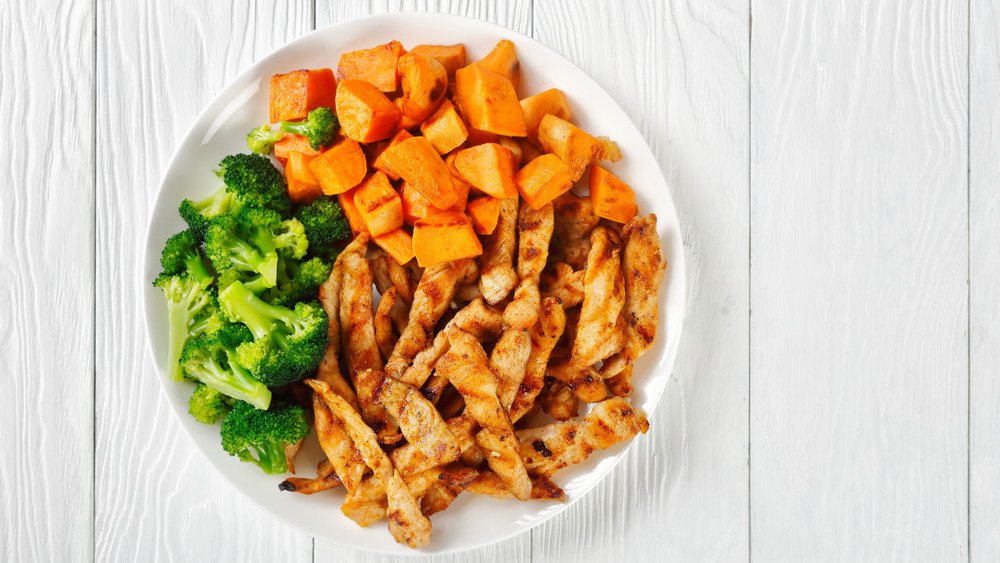This Is What Vitamin A Really Does For Your Body
The list of vitamins our bodies need could almost complete the alphabet. Some may find it overwhelming to make sure we're getting enough of the ones that are most essential to our overall health and wellbeing. That is why we are here to help, and we'll start from the top. Vitamin A is vital to helping support a variety of our bodies' functions and organs, says The National Institute of Health. This fat-soluble compound is needed for well-functioning vision and reproduction, and is a helpful aid to the heart, lungs, and kidneys.
When it comes to assisting our eyesight, vitamin A helps develop pigments that help you distinguish color at night or in dim lighting, states Insider. It also helps to protect your peepers. Julienna Hever, MS, RD, CPT, a registered dietitian, tells Insider just how Vitamin A assists the eyes. "Vitamin A also plays a role in protecting the cornea, the clear outer layer of the eye. This can reduce the risk of developing cataracts, which cause cloudy vision," she says.
Pertaining to our immune system, Vitamin A is essential because it helps us produce white blood cells needed to fight off harmful bacteria. It also helps create bacteria-blocking mucus barriers in our eyes, lungs, and genitals, states Healthline. In addition to this vitamin's protective powers, Insider states that Vitamin A also plays a role in tissue development in our hearts, lungs, and kidneys.
Luckily, vitamin A is easy to find
Reproductively, vitamin A plays a huge role in the health of both men and women. In animal studies reported via Healthline, it was shown that a vitamin A deficiency has been linked to blocked development of sperm cells. And in women, it has been proposed that a deficiency in vitamin A was linked to poor egg quality and negative effects on egg implantation within the womb.
We're now convinced that vitamin A is essential. And how much you need depends a lot on your sex and age. Those who should be getting the most are teenage and adult males, with a recommended amount of 900 mcg per day. Breastfeeding teens and women are recommended to get 1200-1200 mcg per day, according to Healthline.
Where can you find your daily amount of vitamin A? Luckily, it can be found in a lot of different foods! Hever shares that, "Unlike vitamin D or zinc, vitamin A is commonly found in foods, which is why deficiency rates for Vitamin A are pretty low." Medline Plus notes that the food categories high in Vitamin A are meat, fish, poultry, and dairy products. Don't be worried if you are a vegan. There are also high amounts found in sweet potatoes, pumpkin, and carrots. Seeing as how important this essential vitamin is to our overall health and function, we're glad we started from the top of the alphabet.


